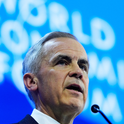South Africa will mourn deeply for its departed hero, Nelson Mandela, a man whose life and political choices enabled South Africans of all races to glimpse the elusive nirvana of a society free from the painful divisions created by colonialism and apartheid.
Although it was not a surprise, coming at the end of a long period of illness and increasing frailty, and despite the fact that Mandela left the political arena many years ago—his last meaningful appearance was at the World Cup final in Johannesburg in 2010—the political implications of his death will still be very significant. While he lived, South Africans could hang on to the hope that they could escape the pernicious legacy of the years before Mandela’s election as the country’s first democratically-elected President in 1994 brought hope and, however briefly, unity to a land that soon became styled as the Rainbow Nation. That was the essence of Nelson Mandela’s symbolic role. Now South Africans look back at the mid-1990s as a golden period in the country’s history, in which Mandela was the pivotal figure, choosing “national reconciliation” as the primary strategic motif of his presidency. In recent times, a more cynical outlook has prevailed in the public mood. The country is battling to combat growing corruption and structural weaknesses in its economy that prevent it from making inroads into a dangerously high official unemployment rate of 25 per cent, and a public sector education system that goes from bad to worse. Nowadays, South Africans of different races and classes appear to speak past each other; the ability to process dialogue and to navigate conflict that was such a distinctive feature of the transfer of power that Mandela oversaw seems to be a lost art. And so the absence of a unifying leader will be felt even more acutely now that Mandela has finally departed. News of his death came at the end of a week in which the beleaguered current President, Jacob Zuma, faced a swirl of new protests against him. Whereas Mandela’s commitment to the rule of law and to the primacy of the constitution was unquestioning and unquestionable, in sharp contrast Zuma appears equivocal. As South Africa enters it most competitive election campaign since the advent of its democracy in 1994 ahead of a 2014 vote, the ruling African National Congress (ANC) is struggling to contain the potential leakage of votes to both the left and the right of the political spectrum, as ANC traditionalists bemoan the loss of the organisation’s core principles and values. While the ANC leadership will no doubt seek to exploit the legacy of its most famous son for electoral advantage, Mandela’s passing will just as likely add to the sense that the liberation period is finally over. South Africa is just another country now. And so the ANC’s own “liberation dividend” will dissipate faster, as millions of new “born free” voters enter the electoral market place, with few if any memories of the struggle against apartheid or even Mandela’s leadership itself. As the electoral landscape becomes more competitive, increased violence is likely in working class township areas, where the contest for political power is really about access to lucrative sources of patronage in terms of government tenders. Already the international investment community regards South Africa as politically risky. Although Mandela’s death will have no impact on policy, it will nonetheless encourage this sentiment. Across this complex and precarious society every organisation and institution, every city and town, big and small, will respond to Mandela’s passing. There has been a massive outpouring of public emotion. Prone to sentimentality, and with a tendency towards manic lurches in public morale, the weeks following Mandela’s death will provide South African society with a poignant opportunity to reflect on the leadership that the country needs if it is to live up to the standards he set, and to overcome the deep-set challenges that apartheid bequeathed it.
What now for South Africa?
Zuma’s failings will be felt more acutely
December 12, 2013











